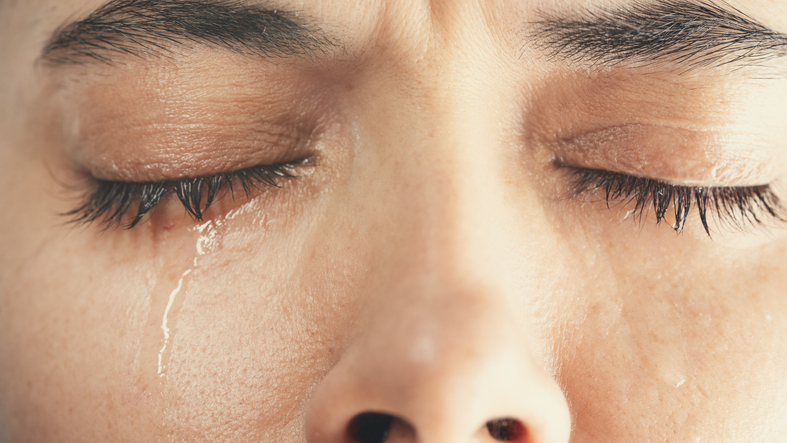The Challenge of Grief
By Dr. Margaret PaulAugust 11, 2025
Grief is always hard, especially when we lose someone we love, but there is a way to manage it that will help it move through rather than getting stuck.
 When we lose someone we love, we feel grief. Grief is a natural feeling in response to loss. However, when we feel grief stemming from our wounded self it is entirely different from the grief felt from our authentic self. This is because what we feel we have lost is different in the different states.
When we lose someone we love, we feel grief. Grief is a natural feeling in response to loss. However, when we feel grief stemming from our wounded self it is entirely different from the grief felt from our authentic self. This is because what we feel we have lost is different in the different states.
Grief Stemming from the Wounded Self
When our wounded self has predominated in an important relationship, the sense of loss might be terrifying. If you handed a part of yourself over to the other person to love, define, take care of, and validate, then you will feel deeply abandoned when that person ends the relationship or dies. It will feel as if a part of you has been torn away, and the feeling of inner emptiness might be extreme. Fear, anger, despair, and grief become intertwined.
This kind of grief is primarily for what you are no longer getting. The wounded self might be saying to the departed person, "How could you leave me? How could you do this to me?" Even if the loved one died rather than left the relationship, the remaining person might be angry at being left.
If it is a parent who died, an adult child might feel angry at the parent for dying without finally coming through with the love they hoped they would someday receive. This often occurs when people have not been a loving adult to themselves, always hoping to get it from someone else.
If your wounded self has spent time resentfully withholding love from the departed person, you might feel deep regret when that person dies and you no longer have the opportunity to love. Regret is a difficult feeling. What is done is done, and you cannot go back and fix it. Regret might lead to despair when you realize you have forever lost the opportunity to express your love.
When you haven't done the work to develop a loving inner adult, the resulting self-abandonment may create fear and anger that accompanies your grief. Your inner child is terrified and may also feel anger about being so alone. These painful feelings may also lead to despair. While loneliness is a natural feeling to feel when we have lost someone we love, your wounded self can feel especially alone when you have no loving inner adult to nurture you through the loneliness and grief.
The fear, anger, despair, and grief stemming from the wounded self can feel like a bottomless pit. Because inner abandonment is ongoing when there is no loving inner adult, the sense of loss is ongoing. To the wounded self, it feels as if you can never recover from this loss. Until you decide to learn to be a loving adult and learn to take care of yourself, the feeling of loss and emptiness will continue.
Grief from the Authentic Self
Grief from the authentic self is not so overshadowed by anger and fear. It is a deep sadness about no longer being able to give love and share love with the departed loved one. You miss this person, not just because of what he or she gave to you, but because you can no longer share your love in person. While you can certainly continue to send love to the departed loved one, it is not the same as sharing love in person, and so there is deep sadness.
When you are showing up for yourself as a loving adult in the face of loss, you will likely not feel abandoned, and therefore you will not feel the deep fear and anger that comes from inner abandonment. Anger at the departed person can be a projection of one's own inner abandonment, and fear can also be a result of this inner abandonment. When you are taking care of yourself as a loving adult, there is no inner abandonment. When you lose someone, having operated in the relationship as a loving adult, openly sharing your love, you will likely have fewer regrets and far less despair.
While loss is always challenging, when your loving adult is in charge you will not feel as alone in your loneliness and grief. You will be there for your own feelings with kindness and compassion, allowing yourself to grieve when the feelings come up. While you may always feel sad when you think of your departed loved one, you will not feel empty, alone, angry, or fearful when you are being a loving adult, compassionately embracing all of your feelings.
Join Dr. Margaret Paul for her 30-Day at-home Course: "Love Yourself: An Inner Bonding Experience to Heal Anxiety, Depression, Shame, Addictions and Relationships."
 Send this article to a friend
Send this article to a friend  Print this article
Print this article  Bookmarked 0 time(s)
Bookmarked 0 time(s)
Comments
| Author | Comment | Date |
|---|---|---|
| Join the Inner Bonding Community to add your comment to articles and see the comments of others... | ||

Daily Inspiration
To be an intellect, you must have proof, reason and logic. To be your own self denies proof, reason and logic. So the choice is to spend life proving what you wish to exist or to simply accept what you feel.
By Dr. Erika Chopich

 Share with Del.icio.us
Share with Del.icio.us Share with Digg
Share with Digg






